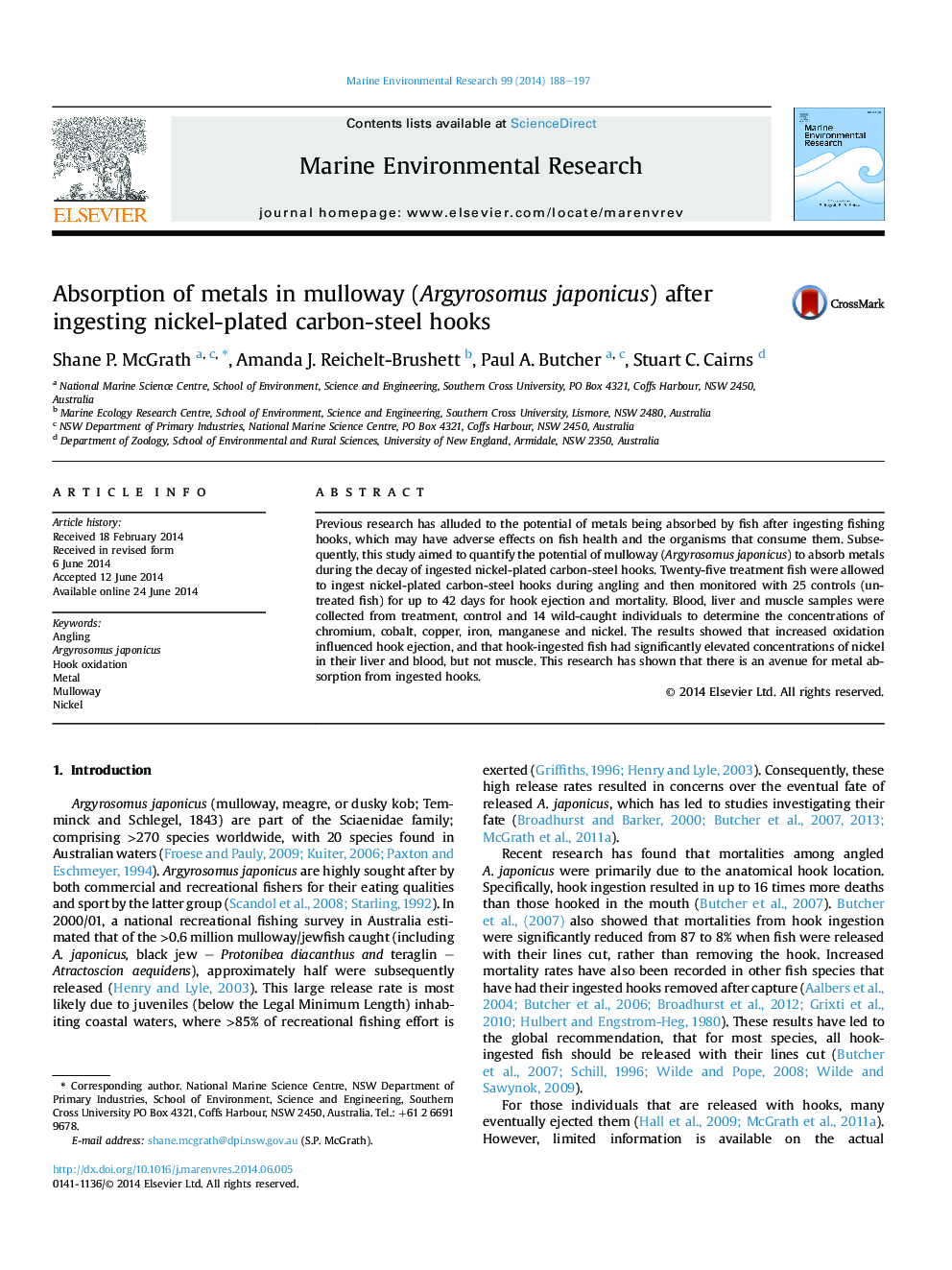| Article ID | Journal | Published Year | Pages | File Type |
|---|---|---|---|---|
| 6387827 | Marine Environmental Research | 2014 | 10 Pages |
Abstract
Previous research has alluded to the potential of metals being absorbed by fish after ingesting fishing hooks, which may have adverse effects on fish health and the organisms that consume them. Subsequently, this study aimed to quantify the potential of mulloway (Argyrosomus japonicus) to absorb metals during the decay of ingested nickel-plated carbon-steel hooks. Twenty-five treatment fish were allowed to ingest nickel-plated carbon-steel hooks during angling and then monitored with 25 controls (untreated fish) for up to 42 days for hook ejection and mortality. Blood, liver and muscle samples were collected from treatment, control and 14 wild-caught individuals to determine the concentrations of chromium, cobalt, copper, iron, manganese and nickel. The results showed that increased oxidation influenced hook ejection, and that hook-ingested fish had significantly elevated concentrations of nickel in their liver and blood, but not muscle. This research has shown that there is an avenue for metal absorption from ingested hooks.
Related Topics
Physical Sciences and Engineering
Earth and Planetary Sciences
Oceanography
Authors
Shane P. McGrath, Amanda J. Reichelt-Brushett, Paul A. Butcher, Stuart C. Cairns,
